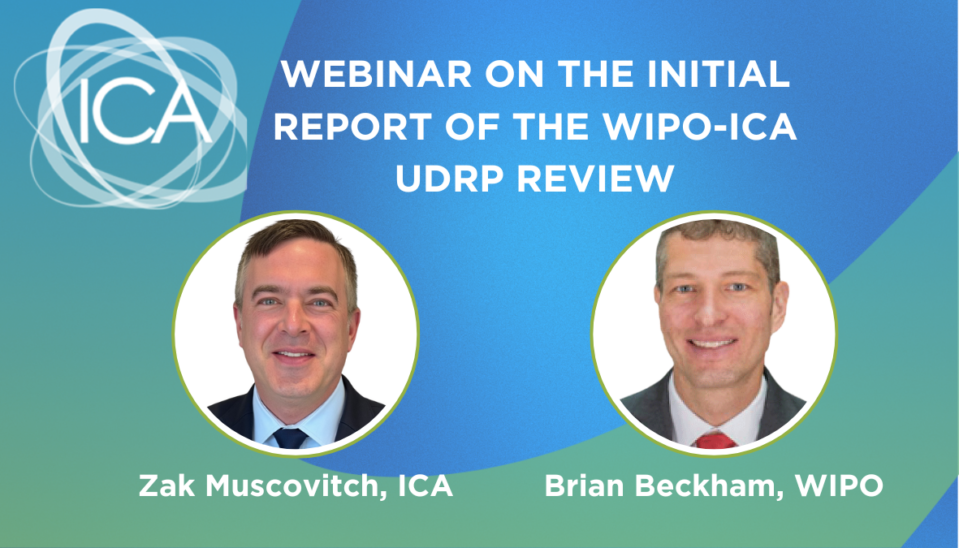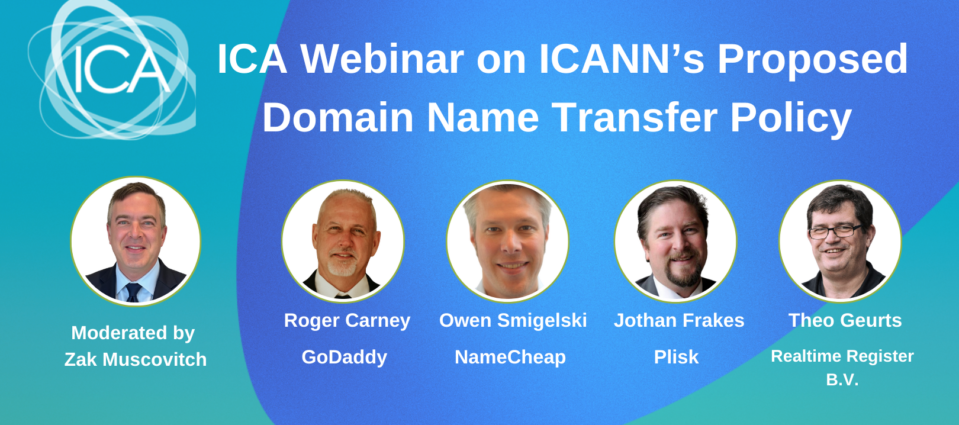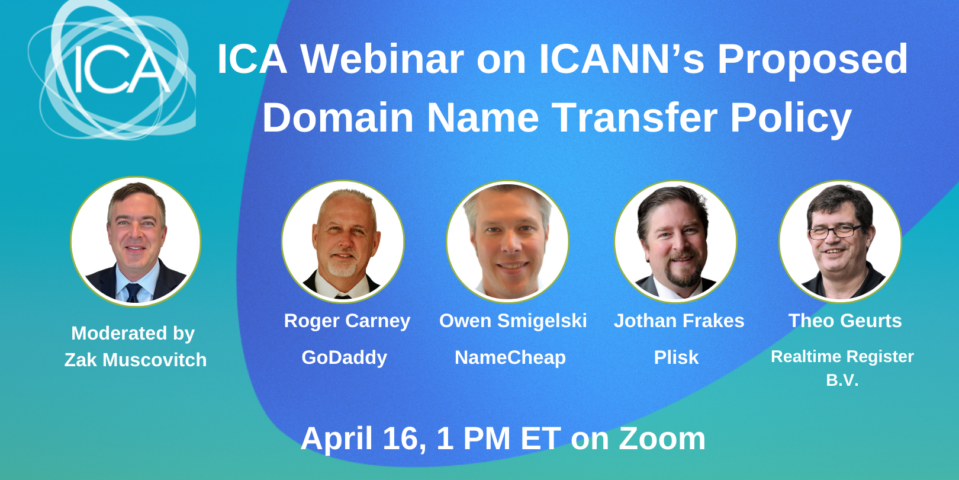Registration is now officially open for the 2026 ICA Member Meeting, taking place January 15–17, 2026 at Park MGM in Las Vegas! Each year, the ICA Member Meeting brings together domain investors, service providers, and key players from across the domain name industry. In 2026, take advantage of three full days of connection, conversation, and community. The meeting has grown …
The Internet Commerce Association Congratulates ICANN Grant Recipients
The ICA, which has been a leading advocate for domain name registrant rights since its founding in 2006, congratulates Universidad Católica del Norte, along with Humberto Rolando Carrasco Blanc, Margarita Valdés, Kathy Kleiman, Chris Reed, and Javier Maestre Rodríguez, on receiving an ICANN grant dedicated to supporting UDRP defenses. This groundbreaking initiative—the first of its kind—can help domain name registrants …
Recording of the WIPO-ICA UDRP Report Review Webinar
Thank you to everyone who joined us live for the ICA’s special webinar yesterday, presenting the Initial Report of the WIPO–ICA UDRP Review Project Team. It was a great session, and we’re excited to share the recording with you. This collaborative project, co-led by Brian Beckham (WIPO) and Zak Muscovitch (ICA), reflects on nearly 25 years of the UDRP and explores ways to strengthen it through …
Join us for the Second Annual Levine Lecture, by David H. Bernstein
The Internet Commerce Association is honored to welcome David Bernstein as the featured speaker for the Second Annual Levine Lecture, a series that highlights influential voices shaping domain name policy and dispute resolution. The Levine Lecture series honors Gerald Levine, recipient of the ICA Lifetime Achievement Award for his significant scholarly contributions to the UDRP. Gerry is the author of …
You’re Invited: WIPO-ICA Report Webinar – Insights into UDRP Reform
The Internet Commerce Association invites you to a special webinar for the domain name community to discuss the recently released Initial Report of the WIPO-ICA UDRP Review Project Team. Join Brian Beckham (Head – Internet Dispute Resolution Section at WIPO) and Zak Muscovitch (General Counsel, ICA)—co-leads of the review—for a conversation on the report’s key findings, areas of agreement and …
SAVE THE DATE – ICA.VEGAS AT PARK MGM!
We’re thrilled to announce that the ICA Member Meeting – ICA Vegas 2026 – will take place January 15–17, 2026, at the Park MGM in Las Vegas! This year, we’re leveling up — while keeping everything you love about ICA gatherings: great people, authentic conversations, and a focus on connection, learning, and community. Why attend ICA Vegas? We heard you …
ICA AMA with Rob Schutz
After a few webinars, we’re resuming our AMAs in May! And you’re in for a treat – mark your calendars for Monday, May 5th, because we’re bringing you a bold and flavorful AMA just in time for Cinco de Mayo! Join us for an exclusive conversation with Rob Schutz, co-founder of the multi-billion-dollar health platform Ro and the startup Snagged.com, which helps people get great domain names …
WIPO and ICA Release Initial UDRP Report for Public Consultation
The Internet Commerce Association (ICA) is pleased to announce the release of the Initial Report of the WIPO-ICA UDRP Review Project Team, developed in collaboration with the World Intellectual Property Organization (WIPO). Read the Report Submit Your Feedback (Stakeholder Feedback Open Through June 27, 2025) The Initial Report is the result of a nearly year-long collaboration between WIPO and the ICA, …
Webinar Recap: What’s Changing in the Domain Name Transfer Policy?
Earlier this week the ICA hosted a webinar on the upcoming changes to the domain name transfer policy—a critical topic for registrars, registrants, and the broader domain name community. Moderated by ICA General Counsel Zak Muscovitch, the panel featured four leading voices in domain policy and registrar operations: Roger Carney(GoDaddy) Owen Smigelski (Namecheap) Jothan Frakes (PLISK.COM) Theo Geurts (Realtime Register B.V.) Together, they unpacked the details …
ICA Expert Call on ICANN’s Proposed New Domain Name Transfer Policy
The Internet Commerce Association invites you to join us on Wednesday, April 16 at 1 PM Eastern for a public Zoom webinar exploring the latest developments in the Domain Name Transfer Policy. What’s changing—and what do you need to know? Which domain name locks are going away? What are the new lock periods? Will transferring domains become easier for registrants and registrars? What happens if …






